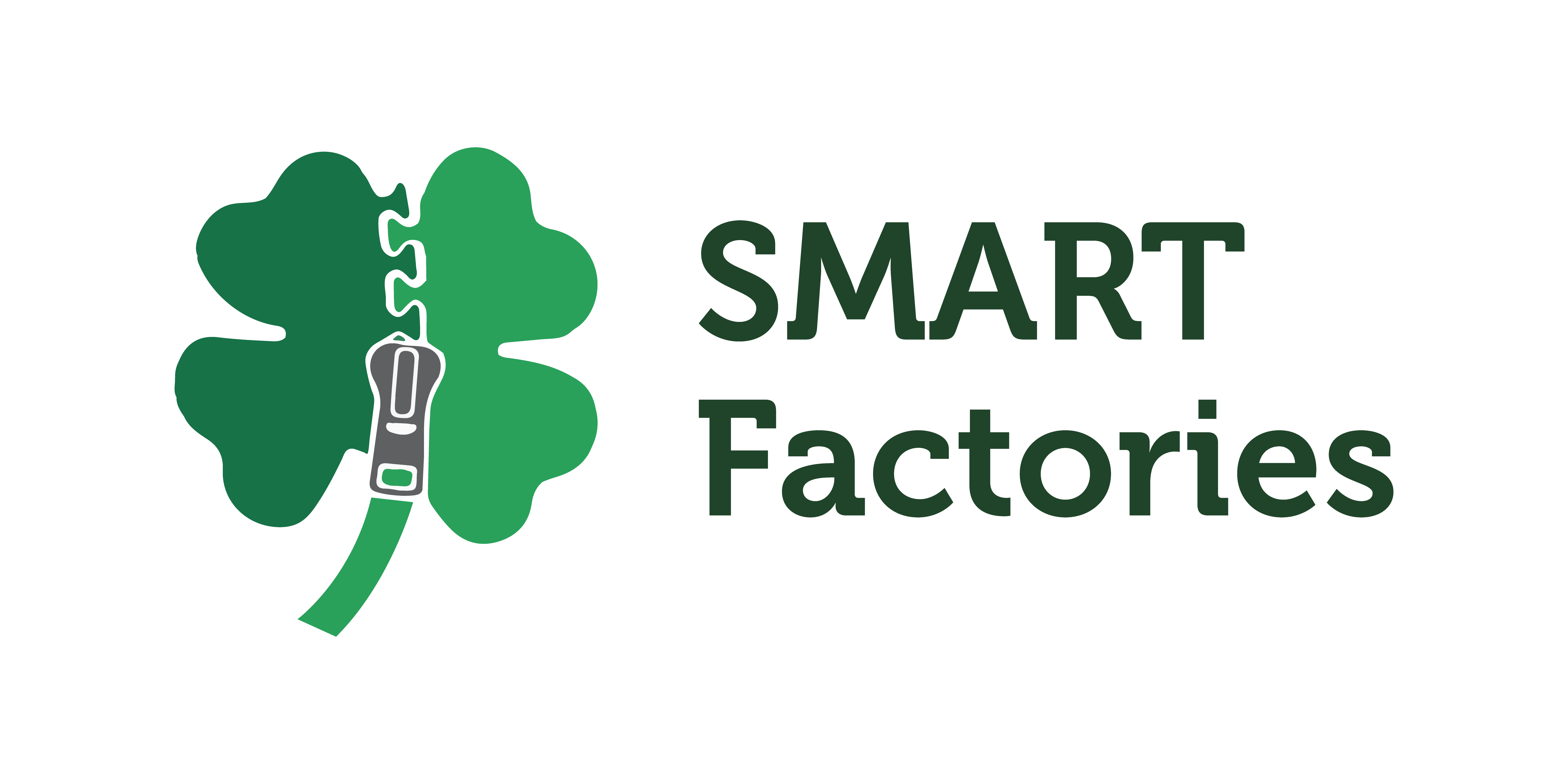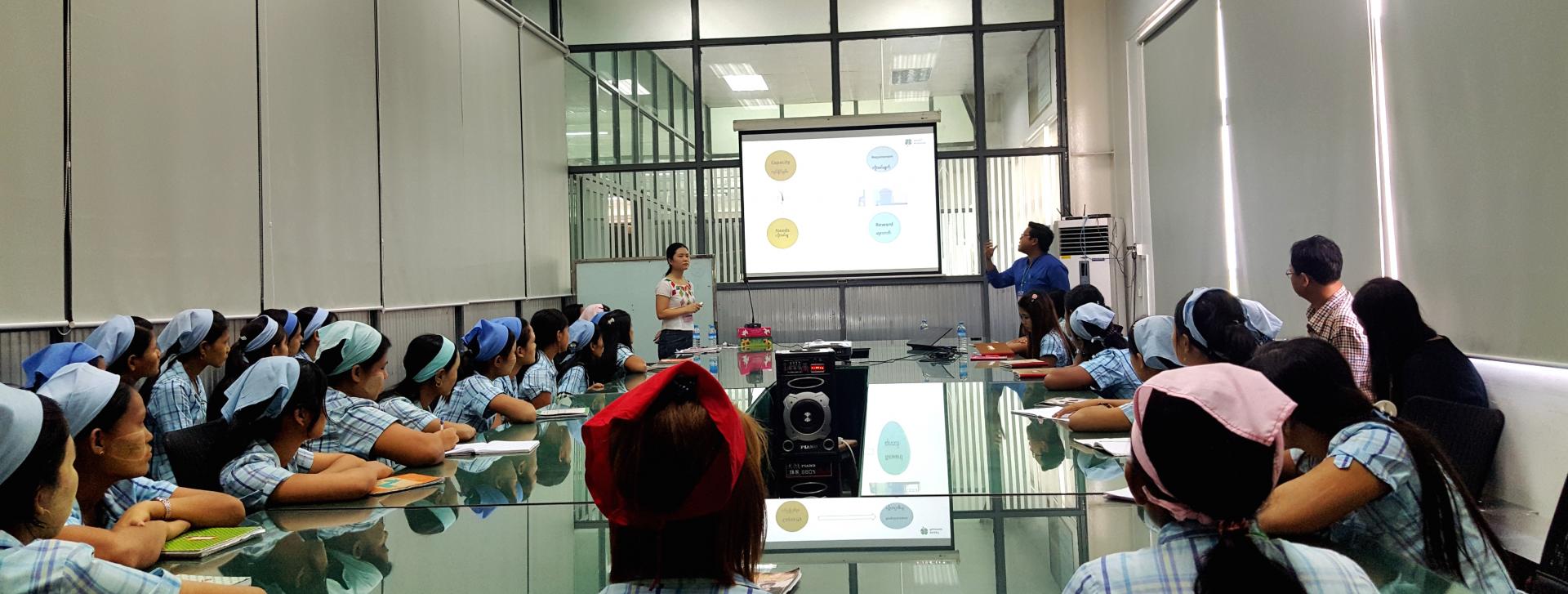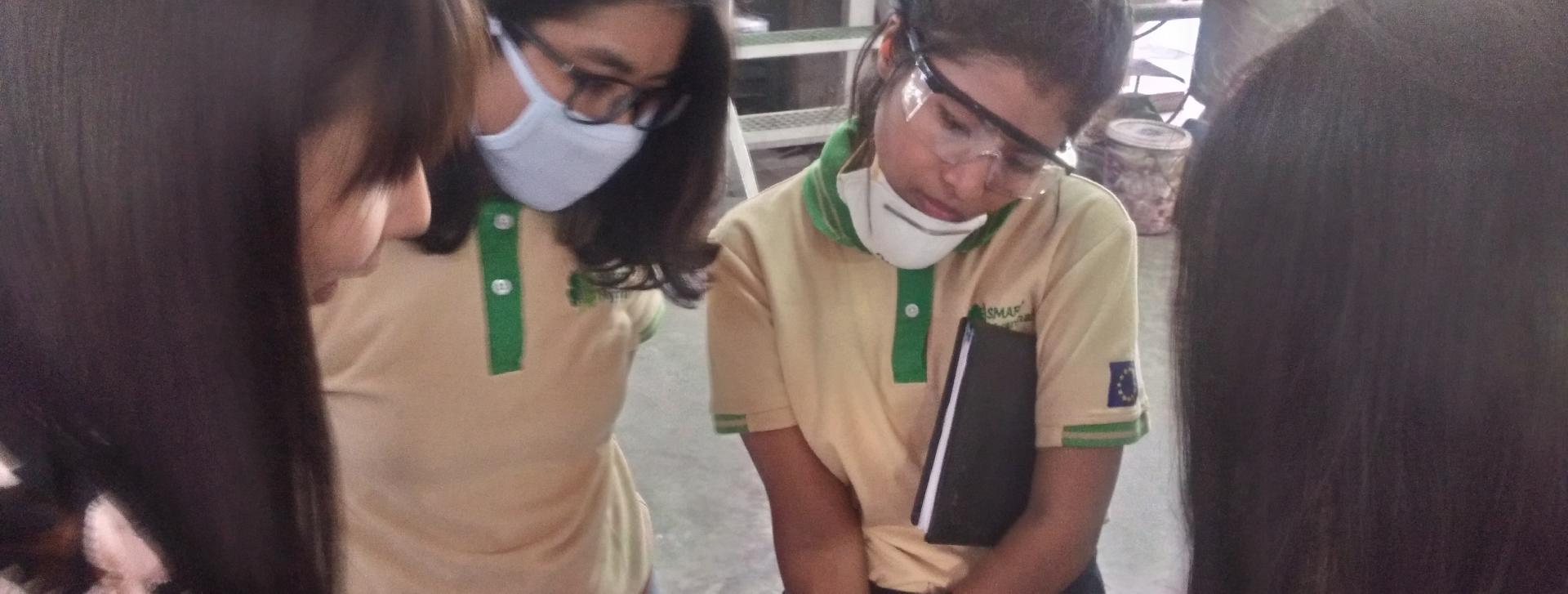Factories supplying for international brands and retailers operate in an extremely competitive and globalized industry. Profit margins are sometimes thin and pressure for improvement comes on many different fronts, from product quality to productivity to social compliance and environmental management.
In terms of social impact the key areas of concern for garment factories in Myanmar ought to be:
1. Labor Rights
General Management
- There is often insufficient communication with all workers on social compliance and factory policies, such as no orientation training and no internal training plan established and conducted. It is important for policies to not just be words on paper, but instead to be living documents and a guiding force for implementing industry best practices within the company.
- Incomplete or unclear hiring policy for new workers which includes age verification, documentation, employee orientation, etc. For instance, “no child labour” statements are extremely common, but it is critical that such statements are backed up by sound policy and also staff training on how to achieve this goal as well as, critically, what to do if child labour is discovered, in terms of responsible remediation. Also, making sure that migrant workers from far away villages are given decent and systematic orientation is key for their successful onboarding within the company. This latter issue is, unfortunately, overlooked by most factories.
- Social compliance cannot be “handled” or “assigned” to one person. It is important that a team with clear responsibilities in the factory take on joint responsibility for ensuring implementation of good social compliance practices.
- Often, trainees and workers on probation do not have contracts. However, this is non-compliant and places employees in a vulnerable situation of highly precarious work. It is important that the factory consider how to handle employee contracts during the training period of workers.
- Missing or incomplete policies and systems for social compliance for sustainable management.
Remuneration
- Factories sometimes do not provide all legally entitled leave (including annual leave, casual leave, sick leave and maternity leave, according to Myanmar law). It is important that factories recognize the law is non-negotiable. Legally entitled leave cannot be restricted. As such, factory procedures must account for employees taking annual leave, casual leave and maternity leave.
- No clear leave policy and application process. It is not enough to have a policy, it must be clearly explained and articulated to all workers. Often, supervisors play a crucial role in making sure the workforce fully understands leave application procedures.
- The remuneration system is not clear and transparent, workers do not understand the salary calculation and bonus system. This problem is all too common. Many workers only have a formal education up to age 11. As such, understanding complicated bonus systems is often something that must be clearly taught and explained to them – most workers will not understand it without some kind of orientation training and, especially, visual cues such as posters, pictures, and infographics. To help with this, SMART Myanmar has developed the SMART phone app Shwe Job, which includes a salary calculator that teaches about how salaries are put together.
Freedom of Association + Grievance Handling & Communications
- Freedom of Association is a legal right in Myanmar and a fundamental right according to the International Labour Organization. In Myanmar, the concept of Freedom of Association has been embraced relatively recently (only since 2011 have labour unions started to form). As such, the legal requirement for workplace coordination committees (WCCs) is not fully embraced. Worker representatives are sometimes (incorrectly) appointed by factory management and not elected by workers. Unions are sometimes excluded from WCCs even though if a union exists in a factory then the union is legally entitled to represent workers on the WCC. Workers involved in these processes do not understand the functions of these structures and members of worker committees often lack the training or experience necessary to undertake their new and challenging roles as employee representatives. For instance, there is often no workers meeting held before the WCC meeting and there is often no record of meeting minutes. Without systematic approaches and skilled negotiations, WCCs and unions can do more harm than good. For this reason, it is essential that factory managers give some space and flexibility to unions within their workplace so that the unions can function effectively, ensuring that worker grievances are properly known and remedied. In this way, a more wholesome and effective workplace environment can be developed.
- The suggestion box system does not exist or is not effective: Perhaps, there is no suggestion box or perhaps workers do not know the location of the box or and how to use it. Similarly, management does not regularly check the box and there is no clear procedure on how to take action to address suggestions. Quite often there is no record of complaints handling.
The above things might seem like small or simple matters, but a suggestion box system, if properly and fully implemented, can be an effective tool for creating a healthier, happier and more productive workplace. Generally, one “best practice” system for suggestion boxes is to involve the labour union in the reading and remediation of suggestions. This is a healthy activity for management and worker representatives to handle together and can promote a more harmonious workplace culture.
Disciplinary measures
- There should be no unreasonable deductions. Common examples of unreasonable deductions include: work mistakes, usage of phone, damaging work tools, etc. There are better ways than deductions to handle these matters. A worker using their phone during work hours could be denied the opportunity for overtime, for instance.
- There should always be a disciplinary policy and a record of disciplinary measures and workers should be taught and informed about the policy. Related to this, it is important that disciplinary actions remain consistent with such policy.
2. Environmental Health & Safety
- The fire fighting equipment (fire extinguishers, fire hydrants) is sometimes not well managed, despite being critically important in the event of fire. Regular maintenance checks must be systematically conducted on all fire suppression equipment.
- There are sometimes poor evacuation systems and a lack of maintenance to ensure that evacuation routes are free and clear. If all else fails and a fire breaks out in the factory it is essential that workers know how and where to escape the building and that they are freely able to do so.
- General building maintenance is sometimes neglected, which can create an unsafe or uncomfortable work environment. A factory is typically a large operation, and as such maintenance teams, maintenance budgets and systems must be suitably robust. SMART Myanmar often observes factories with one or two maintenance staff when the real need is for several more than this. And, if maintenance staff are handling electrical installations and wiring they must be qualified electricians. This point is extremely important.
- There are sometimes no fire safety teams or teams exist without clear responsibilities and capacities. It is important that fire safety teams meet regularly, have their names/photos and responsibilities publicly posted, and that team members participate in outside training when necessary.
- Hazardous chemicals are a serious matter, but unfortunately there is sometimes insufficient monitoring of hazardous chemicals and their usage within the factory. In such circumstances, it is easy for injurious or deadly accidents to occur. Prevent this from happening by having policies on hazardous chemical management and by training staff involved with hazardous chemicals on their proper usage. In terms of best practices, also work towards a reduction and elimination of hazardous chemicals in your workplace.
- Insufficient machine safety management is a frequent issue: missing safety guards for the dangerous machines; no training on machine safety for workers; no trainings and certificates for operators of special machines (esp. cargo lifts, air compressors, boilers, generators).
- Insufficient waste management is conducted. Proper waste management means adequate segregation, storage and disposal practices. Reducing overall waste via lean management processes will, of course, lessen the burden of waste storage and disposal.
- Personal protection systems are not fully secure; sharp tools are not tied up and are not managed well; no records and analysis of injuries/accidents; no provision of correct and sufficient personal protective equipment (PPE) to workers, e.g. metal glove for cutting workers.
- Lack of systematic management on these topics, such as having no EHS committee and no internal assessments. It is important that factories establish regular self-evaluation procedures on all the above mentioned items and that these self-evaluations are overseen by an EHS committee.





